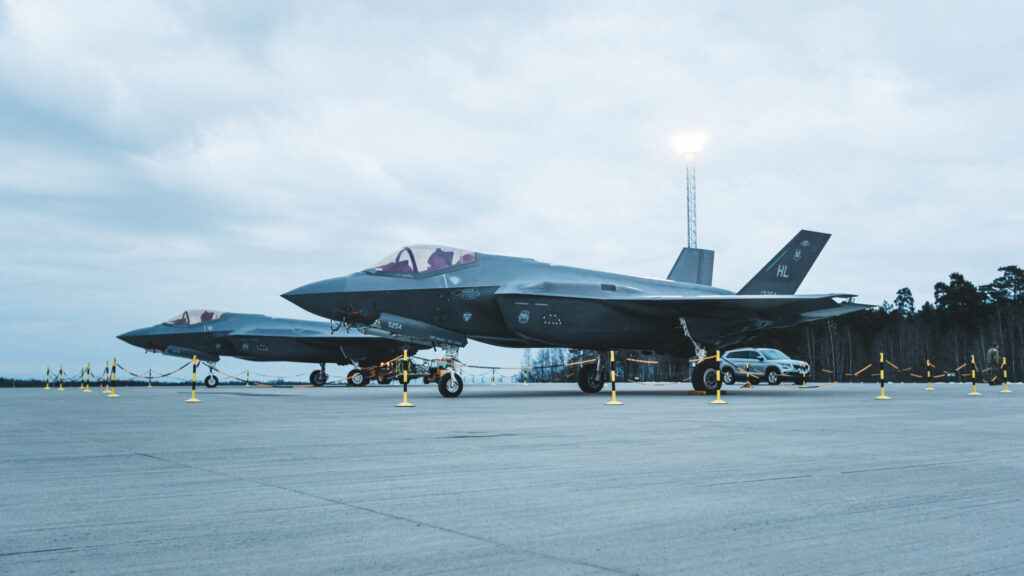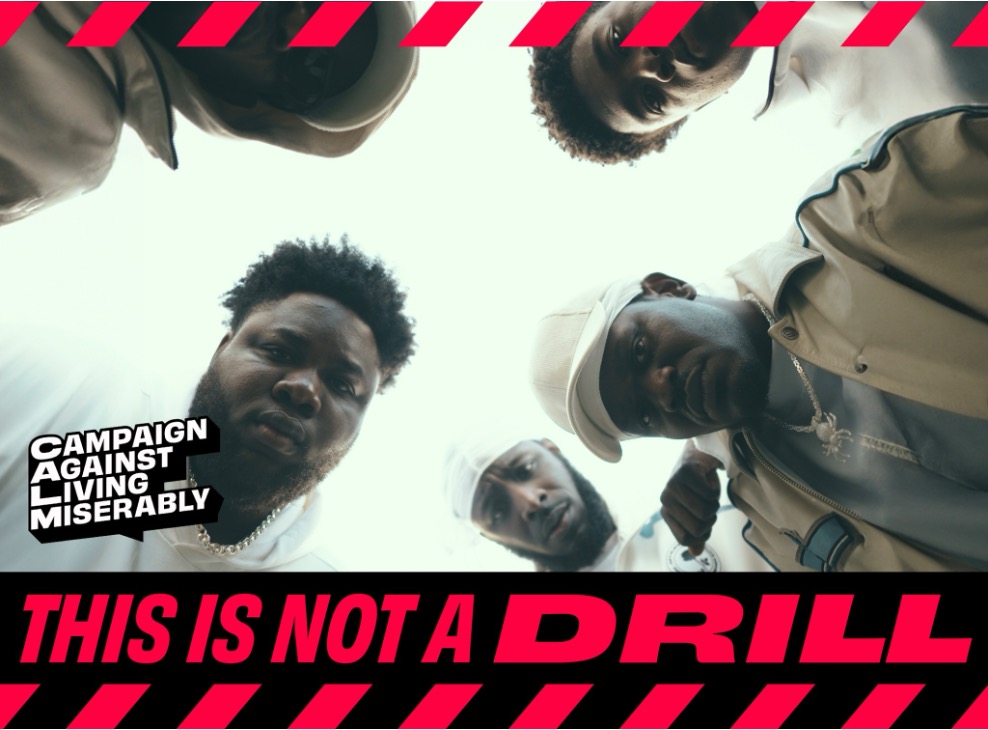Two US Air Force F-35 Lightning II aircraft assigned to the 34th Fighter Squadron at Hill Air Force Base, Utah, arrive at Ämari AB, Estonia. (US Air Force)
BELFAST — At the risk of causing alliance division, NATO allies will postpone discussion and potential agreement on increasing defense spending to a new 2.5 percent GDP minimum target, until the 2025 Netherlands Summit, one of Estonia’s top defense officials said today.
Tuuli Duneton, Estonia’s Undersecretary for Defence Policy told reporters that since the NATO Summit in Vilnius, Lithuania, last year, “the general understanding has been that nations probably are not going to be ready to take [on] a new 2.5 percent target by this summit,” referring to NATO’s flagship event due to take place in Washington next week.
“The fact that we are very keen to keep our unity in Washington … [means] we would not like to see divisional points [made] among allied countries and we know as well that it’s not an easy discussion point for many allied countries,” said Tuuli.
She stressed, however, that the 2.5 percent target “is something that we need to do” and allies will be in a better position to take up discussions about the issue in 2025, once NATO has shared new capability targets with each of the 32 member nations.
“Those [capability] targets are going to be very high and it would be quite difficult to achieve” them without increasing defense spending, added Tuuli.
“There is going to be a very concrete incentive by NATO itself. If we would like to be capable of defending ourselves as our regional plans are foreseeing, the requirements are higher and therefore we would need to invest more as well.”
Last year, NATO approved new regional defense plans covering the North Atlantic and the Arctic; the Baltics and Central Europe; and the Mediterranean and Black Sea. The plans go hand in hand with NATO’s support of a 300,000 high readiness force.
Tuuli also said that Estonia’s current defense spending stands at 3.4 percent GDP, while Baltic Sea counterparts Latvia and Lithuania have established a governmental agreement to reach a target of three percent, with Vilnius on track to do so by the end of the year.
Estonia has also pledged to dedicate 0.25 percent GDP to military aid for Ukraine and proposed that all Ukraine Defense Contact Group members, numbering more than 50 nations, do the same. Discussions on that front are “ongoing,” according to Tuuli.
Earlier this month, NATO said that 23 allies “are expected to meet or exceed” the current two percent GDP target, but holding off on agreeing an uplift until at least another year, could have severe repercussions for Ukraine’s war effort against Russia.
In contrast, Tuuli acknowledged that Moscow had been “quite successful” in ramping up defense spending to a level of seven to nine percent GDP, based on figures from “different sources.”
The threat posed to NATO by Russia is seen by Tuuli as “existential, and will remain so in the long run,” because of Moscow’s ability to “quickly” reconstitute its forces and equipment inventory, together with a supporting plan to increase its presence near the Baltic states and Finnish border.
Tuuli said that during the Summit next week, she expects NATO to continue focusing on coordinating bi-lateral pacts between Ukraine and other individual nations, and hopes that allies will agree on a so-called “Vilnius plus” wording in connection to Ukraine’s push for an invite to join the alliance.
An invitation remains highly unlikely while the war in Ukraine continues. Outgoing NATO Secretary General Jens Stoltenberg said in May that the “timing of the invitation depends on when there will be consensus and when conditions are met.”
Elsewhere, three new countries, including Japan will soon join the Ukraine IT capability coalition, led by Estonia and Luxembourg and which has so far attracted funding of €60 million ($64 million), said Tuuli.
She confirmed that a second tranche of deliveries, covering “secure communication lines” by the IT coalition will go ahead “in the upcoming weeks” and help “Ukrainians to better manage their own battlefield.”
The Estonian Ministry of Defence is also “looking at different ways” of how local drone manufacturers could become part of the Ukraine drone capability coalition, she added. Tallinn is already a partner for the effort, led by Lativa and the UK, but for the moment it does not expect to make a “specific financial contribution” toward it.





















Discussion about this post